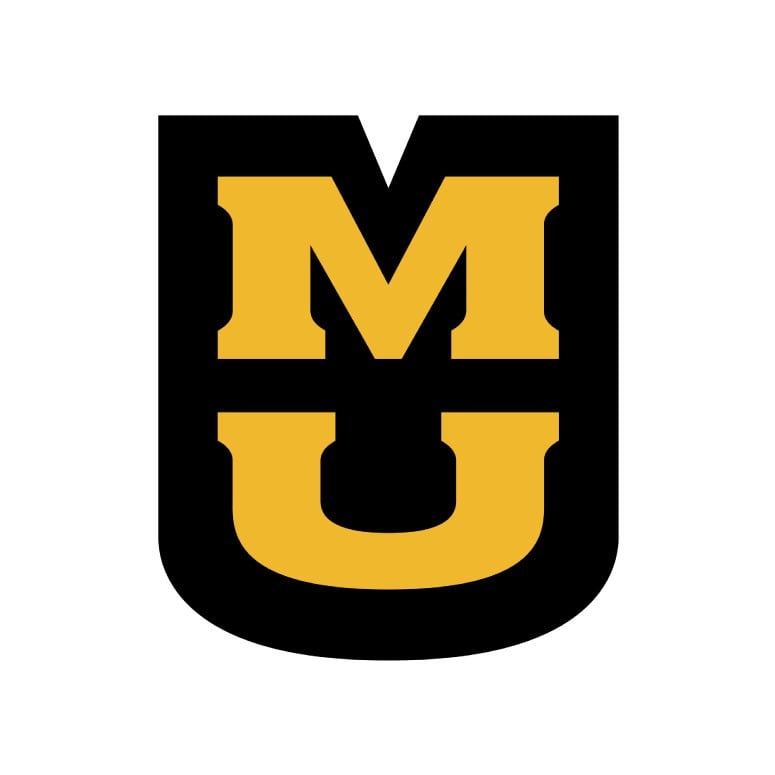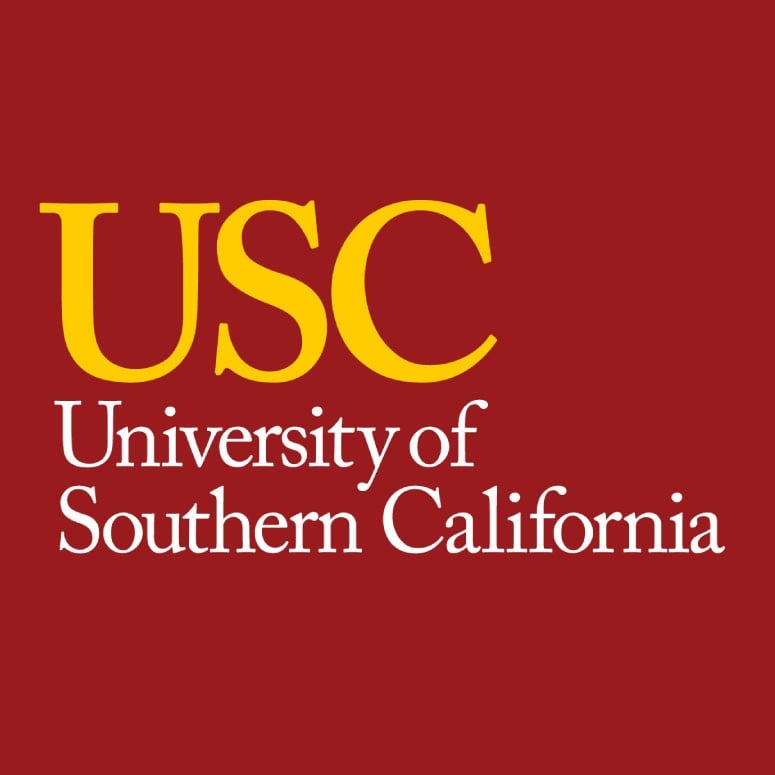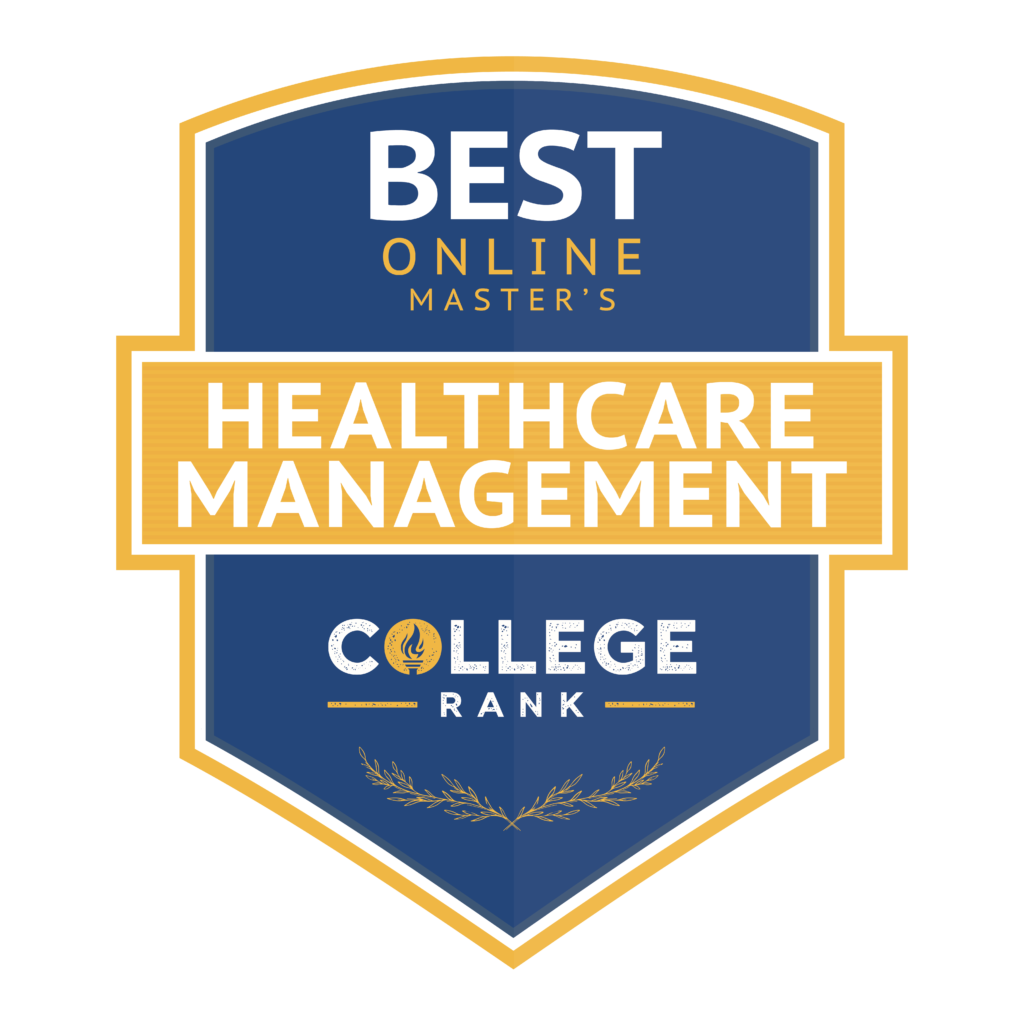Earn your degree from one of the best master’s in healthcare management programs and be a strong leader the industry needs.
With a master’s degree in healthcare management, you will be offered higher paying positions that require more responsibility, along with an abundance of respect from your peers. When you position yourself as a leader in the healthcare arena, you make decisions that involve life or death scenarios.
A healthcare management master’s program takes a special kind of person—assertive enough to stand up for what’s right and credible enough to move things along smoothly and calmly.
As healthcare spending continues to scale as a growing problem in the years to come, professionals with an educational background in healthcare management will level out the playing field and help the industry as a whole.
What are the Best Master’s in Healthcare Management Degrees?
We know that you have educational goals that you’re itching to pursue, but you may not know where to start. The editors of CollegeRank utilize a unique ranking methodology based on the following three aspects:
40% Potential Salary After Graduation: Average mid-career salary of school alumni
30% Institutional Accreditation: Regional and National Accreditation for the 2019-2020 school year
30% Overall Degree Affordability: Average cost of undergraduate and graduate tuition per school
At CollegeRank, we strive to do our best to guide you and your family toward a fruitful academic career. The pursuit of knowledge is a noble one, and we want to help you reach your goals. For questions, comments, badge downloads, or data corrections, please feel free to reach out to us at editor@www.collegerank.net.
The University of Texas at Dallas

It took the University of Texas at Dallas fewer than 50 years from its establishment to earn the Carnegie Foundation’s “Highest Research Activity” designation. UT Dallas has more than 140 academic programs and awarded nearly 5,000 degrees during its spring 2018 commencement exercises. The school is also home to nationally-ranked chess and debate teams.
UT Dallas’ online Master of Science in Healthcare Leadership and Management requires 18 to 24 months of coursework. There are 27 credit hours of core coursework, along with nine hours of electives. The three elective classes are related to each student’s chosen area of concentration.
Core courses in the program include Financial Management, Accounting for Managers, and Organizational Behavior. Students then choose from one of five concentrations: Health Informatics, Healthcare Internal Auditing, Healthcare Operations, Quality Improvement, and Supply Chain Management. Students take three elective courses related to the concentration, such as Healthcare Economics or Internal Audit.
Students must hold a bachelor’s degree from an accredited university to apply and submit GRE/GMAT scores. The median age for students in the program is 25, and 74% of students are female. Certificate programs are also available in Lean Sigma Six Health care IT.
Clarkson University

Clarkson is a private university located in Potsdam, NY. The school was named after a quarry worker, Thomas S. Clarkson, who sacrificed his life to save a fellow employee from being crushed by a loose quarry pump. The Clarkson family founded the Thomas S. Clarkson Memorial School of Technology in his honor. The school took its current name in 1984.
Clarkson offers an online Master of Business Administration in Health care Management. The program is made up of 48 credit hours of coursework delivered through seven core courses, seven advanced courses, and two electives. If a student attends full-time, the program can be completed in two years or less. Part-time students typically finish in two to four years.
As part of the core and advanced core curriculum, students take courses such as Healthcare Leadership Pro Seminar, Health Informatics, and Legal Aspects of Healthcare. Some courses are delivered in a 3-day, on-site weekend format. Students with little or no prior work experience are also required to complete an internship as a part of the program.
Clarkson offers a dual degree program option for students interested in healthcare analytics. Students can pursue dual enrollment and complete both an MBA and a Master of Science in Healthcare Data Analytics. Past alumni cohorts of the program have reported a minimum job placement rate of 90% within six months of graduation.
University of Missouri, Columbia

The University of Missouri, Columbia, was the first public university founded in the United States west of the Mississippi River. It is also home to the world’s first journalism school, the Missouri School of Journalism, founded in 1908 by Walter Williams.
The school’s main campus is located on the Francis Quadrangle, which is a National Historic District.
The University of Missouri, Columbia is home to an online Master of Health Administration degree. This 42-credit-hour program is offered in a blended format, meaning that some on-campus work is required. Courses in the program cover financial management, healthcare law, human resources, and leadership.
Graduates of the program currently hold titles such as Chief Financial Officer, Chief Executive Officer, and Director of Health Information Management. Students generally finish the program within two years. Four-weekend campus visits are required in each spring and fall semester. Sample courses from the program include Decision Support in Health Care Systems and Health Policy and Politics.
University of Southern California

The University of Southern California is a private university located in Los Angeles. USC was founded in 1880 and originally affiliated with the Methodist Church, though the university no longer has a religious affiliation. In addition to its academic prowess, the school has a number of celebrated athletic programs, which have produced more than 100 NCAA national team championships and 400 individual titles.
USC offers an online Executive Master of Health Administration through its Price School of Public Policy. Students may begin work in the fall, spring, or summer semesters, and the program generally takes six semesters to complete. An on-site residency experience is required as part of the program.
Students take core courses such as Health Care Economics, Financing, and Reimbursement; Operational Efficiency Processes in Health Care Organization; and Quality of Care. The curriculum requires 36 credit hours. Applicants are expected to have a minimum of five years professional experience at the mid to senior level.
The program faculty is comprised of experienced professionals who have a strong mixture of academic and professional experience related to health care. For example, Dr. Dana Gordon has a PhD in Economics from Stanford University. He is a health policy adviser to the Congressional Budget Office and is an elected member of the National Academy of Medicine.
University of Massachusetts, Dartmouth

The University of Massachusetts-Dartmouth was originally known as Southeastern Massachusetts University before joining the University of Massachusetts system in 1991. UMass Dartmouth now has more than 8,000 total students, including nearly 1,700 postgraduates.
The university recently added a law school, which earned full accreditation in December 2016.
UMass Dartmouth offers a Master of Science in Healthcare Management through the Charlton School of Business. Students must complete 30 credit hours to graduate, which includes eight required courses and two electives. Students also have the option of completing a master’s thesis or master’s project.
The primary areas of focus are management of costs, quality, error reduction, and the development of leadership, motivation, and collaborative skills. Sample courses from the curriculum include Leading, Motivating, and Empowering Others, Management of Organizational Change, and Strategic Cost Management.
Students without an undergraduate degree in business may be required to complete up to nine additional credits of prerequisite courses before beginning the graduate curriculum. Students receive one-on-one advising from start to graduation. UMass Dartmouth also offers free online and in-person tutoring and writing center services.
University of St Francis

The University of St. Francis is a private Roman Catholic university associated with the Congregation of the Third Order of St. Francis of Mary Immaculate. The school’s main campus is located roughly an hour southwest of Chicago.
The student body is evenly divided between undergraduate and postgraduate students, with about 1,600 of each. As of 2018, almost two-thirds of the students were women (65.4%).
St. Francis is home to a Master of Science in Health Administration program designed for working professionals. Classes in the program are available online, though some courses meet one evening per week or are delivered as six all-day Saturday sessions. Students can enter the program during any semester, and the program can be completed in as few as 15 months.
The program’s curriculum includes nine courses comprising 36 credit hours. There are five concentrations for students to select from: Data Science in Health Care, Leadership in Healthcare, Management of Long-Term Care, Population Health, and Quality Improvement in Health Care. Required courses make up 15 hours, while electives and concentration courses account for eight and 12 hours, respectively.
In-person courses can be completed at campus locations in Birmingham and Joliet, AL. Program applicants must have at least two years of significant experience in the healthcare field and hold a bachelor’s degree from a regionally accredited university, with a minimum GPA of 2.75.
Southeast Missouri State University

Southeast Missouri State University is a public university located in Cape Girardeau, MO. SEMO began as a normal school in 1873, preparing future teachers. It became a full university in 1973. The school’s campus has grown along with its academic offerings; it recently completed construction of the Holland School of Visual and Performing Arts.
SEMO offers a Master of Science in Healthcare Management degree designed for individuals currently employed in the healthcare industry. Applicants must have an undergraduate GPA of at least 3.0 and meet minimum GRE or GMAT scores. The admissions committee also considers unique cases for probationary admission.
This is a 30-credit-hour program that includes six core courses, such as Organizational Behavior in Practice and Applied Human Resource Management. Each student also chooses a concentration, such as communications or informatics. Concentrations each have four designated courses and allow for one elective, which is chosen at the student’s discretion.
Nebraska Methodist College of Nursing & Allied Health

Nebraska Methodist College is a small Methodist college offering degrees focused on the field of health care. It enrolls roughly 640 undergraduate students and 65 graduate students. Nebraska Methodist was founded in 1891 and operates as a private, non-profit university.
Nebraska Methodist offers an online Master of Business Administration in Healthcare. This online MBA program can be completed in 24 to 30 months, though students may lengthen or shorten this depending on their enrollment status.
Most courses last ten weeks, with scheduled breaks every five weeks. There is no interview process for admission, and GRE/GMAT scores are not required.
Students may begin courses in either the fall or spring semester. The core curriculum includes Accounting for Decision Making, Managerial Statistics, and Business Law & Ethics in Healthcare. Students complete eight core courses (for a total of 24 credit hours), and 18 hours are dedicated to electives.
The school also offers an online master’s program in Wellness and Health Promotion Management and graduate certificate programs in Healthcare Analytics, Healthcare Leadership, and Leadership Matters. Elective course options from the MBA program include Consumer Health Informatics, Lead Six Sigma in Healthcare, and Quality Management in Healthcare.
John Hopkins University

Johns Hopkins is considered one of the first research universities in the United States. For the past several decades, Johns Hopkins has spent more on research funding than any other college or university in the country; in the 2016 fiscal year, it spent almost $2.5 billion on research alone.
Johns Hopkins offers a 36-credit hour Master of Science in Healthcare Management program that can be completed in one year if registered full-time or in two years if registered part-time. The part-time curriculum is ideal for working professionals, with classes offered during the evenings, on weekends, and online.
Students enrolled in the online MS in Healthcare Management program are required to take at least one residency course. This course includes one 2.5-day onsite learning component. The residency is completed at the Carey Business School’s Harbor East Campus in Baltimore.
The program curriculum is split among business foundations (18 credits), the functional core (6 credits), and elective courses (12 credits). Each class is worth two credit hours, meaning that, in total, students complete 18 courses. Electives available include Data Analytics, Health Marketing and Access, and Medical Devices and Diagnostics.
American University

American University is a private university located in Washington D.C. The school is affiliated with the United Methodist Church, but does not consider affiliation a requirement for admission. Its proximity to the nation’s capital makes it one of the main feeder schools to the U.S. Foreign Service and other government agencies.
American University offers an online master’s degree in Healthcare Management. This program is intended for students interested in entering mid to senior level management positions, or health care analyst and consulting positions. It is a project-oriented program, delivered through a curriculum model referred to as the Professional Studies Experience (PSE).
The PSE is a 20-month, 30 credit hour program. Students progress through a four-phase sequence of core courses, elective courses, field/professional work, and a capstone experience. Each student in the program also has an optional opportunity to visit American’s campus in Washington, to interact personally with professors and classmates.
Quinnipiac University

Quinnipiac University is home to the Quinnipiac University Polling Institute. This organization publishes widely circulated polls of the U.S. population, especially during election season. It also tracks responses to social questions, such as religious affiliation or views on various moral issues. The university is home to law, medical, and nursing schools.
Quinnipiac offers an online Master of Business Administration program that includes a Healthcare Management track option. Students are expected to complete 46 credit hours, which includes 28 hours of core courses and 18 hours of specialized courses related to health care administration.
Core courses in the program include Managing the Decision Making Process, Financial Decision Making, and a Decision Making Capstone. There are five courses in the health care management sequence, including Integrated Health Systems and Managed Care and Legal Aspects of Health Delivery.
The program sequence includes room for two elective courses. One of these is dedicated to decision making tools, through a course such as Managerial Economics or Business Decision Analysis. Students also choose a fully free elective, which can cover a topic such as Health Policy and Politics or Epidemiology and Public Health.
Saint Leo University

Saint Leo University is a Roman Catholic university established in 1889. The school‘s mascot is a named Fritz, which refers to the Saint Bernard dogs owned by the first abbot of Saint Leo Abbey. Of the school’s more than 11,000 students, nearly 7,200 of them attend courses and programs online.
Saint Leo’s online Master of Business Administration in Healthcare Management requires 36 credit hours of coursework. Some students can complete these requirements in as little as one year, though students have up to five years to meet the graduation requirements. Saint Leo offers six start dates throughout the year.
Students in the program take courses such as Marketing, Critical Issues in Health Care, and Global Business Management. There is an optional elective available for students who wish to pursue an internship during the program. Health care management is one of the concentrations offered within the broader MBA program. With approval from the program director, students may opt to seek a second concentration during the program.
University of South Carolina, Columbia

The University of South Carolina, Columbia is the flagship institution of the University of South Carolina’s public university system. The school offers more than 350 programs of study to a student body of over 50,000. The facilities also house large collections of papers from Robert Burns and Ernest Hemingway, as well as the largest Scottish literature collection outside of Scotland itself.
The university offers a number of graduate degrees related to Health Services and Policy Management. One of the most popular programs is the Master of Public Health in Health Services Policy and Management, which is available through the school’s distance learning service.
The MPH program is a 45 credit hour degree program with coursework covering topics such as health services policy, public health finance, public health law, and program planning and evaluation. These courses are offered in addition to fundamental public health courses covering biostatistics, epidemiology, and health promotion.
University of Scranton

The University of Scranton is a private Catholic university and one of the 28 member schools of the Association of Jesuit Colleges and Universities. The school has a rugby team known as the Scranton Norsemen Rugby Football Club, who, along with their on-field play, often donate time to Scranton’s branch of Habitat for Humanity.
The University of Scranton is home to an Online Master of Business Administration in Healthcare Management. The Scranton MBA offers a flex curriculum that allows students to trade some of their core courses from the curriculum for advanced electives related to their chosen specialization.
Students must complete 36 credit hours of coursework, which, depending on whether or not they use the Flex option, may include up to seven core courses or six advanced electives. Advanced electives from the health care management track cover Health Services and Systems, Healthcare Financial Management I/II, and Hospital Administration.
Students without undergraduate coursework in business may be required to complete foundation modules before beginning graduate coursework. Other electives available in the MBA program include Business Analytics, Enterprise Resource Planning, and Finance. Students also have the option of pursuing a general emphasis MBA degree.
Loyola University Chicago

Loyola University Chicago is one of the largest Cathoic universities in the United States. Loyola has six different campuses throughout the Chicago metro area, along with international campuses and connections in Rome, Beijing, and Ho Chi Minh City. It is the only school in Illinois to ever have won an NCAA men’s basketball championship.
Loyola offers an online Master of Arts degree in Health Care Mission Leadership. Coursework in the program incorporates teachings from ministry, healthcare, and bioethics. The program’s courses are offered fully online, but students must complete an education practicum in their home state. Graduates are equipped with the unique skills needed to serve the missions of Catholic hospitals across the country.
Courses in the program include Justice and Healthcare, Clinical Bioethics, Ethics, Genetics & Health Policy, and Moral Theology for Bioethics. The program requires five core courses and five electives. Students have up to five years to complete their coursework, but those registered full-time can complete the requirements in under one year.
In addition to its online course offerings, Loyola offers blended courses that give students the opportunity to meet face-to-face with faculty and peers. With only two or three on-campus days required per course, these courses retain much of the flexibility and convenience of those offered fully online.
Concordia University, Wisconsin

Concordia University, Wisconsin is a Lutheran university located in Mequon, WI. The school recently merged with another branch of Concordia, Concordia University Ann Arbor. The success of the merger led to the near doubling of enrollment in 2018, alongside the development of a School of Nursing, a new football stadium, and renovations to three quarters of the campus.
Concordia offers a Master of Business Administration program that can include a health care management specialization. There is no application fee, and applicants do not have to submit GRE or GMAT scores. There are 12 courses in the degree sequence, which total 36 credit hours of course requirements.
Students can choose one, or even two, specializations during the MBA program. Each specialization requires students to complete four electives. The courses for the Health Care Management track are as follows: Health Care Systems I & II, Health Care Finance & Economics, and Public Policy in Health Care.
University of Delaware

The University of Delaware was the first American university ever to offer a study abroad program. In the fall of 1923, Professor Raymond Kirkbride travelled with nine students to Paris, France. UD now has programs in over 40 countries, and nearly one-third of its students choose to study abroad.
UD is home to a Master of Business Administration program in Healthcare Management. The Delaware MBA requires 29 credit hours of core coursework, including Fundamentals of Analytics and Managing People, Teams, and Organizations. Students also take professional development seminars that help them address topics such as building emotional intelligence, communicating, branding, and career networking.
Beyond the core coursework, Delaware offers several majors and concentrations for MBA students. The health care management major includes five courses (15 credit hours), such as Population Health Informatics, Leadership and Innovation in Population Health, and Policy and Finance for Healthcare Delivery. Students can complete the online MBA in as few as 16 months.
Minnesota State University Moorhead

Minnesota State University Moorhead was founded in 1888 as the Moorhead Normal School. Moorhead transitioned through several phases, first as a teachers’ college and then a state college, before achieving university status in 1975. MSUM hosts an annual student academic conference that provides a formal setting for undergraduate and graduate students to present their research.
MSUM offers an online Master of Business Administration program in Healthcare Management. Students can enter the program in either the fall or spring semester; they may even take up to nine credit hours before formally beginning the program. The degree requires 37 credit hours of coursework.
Core courses comprise 22 credit hours and include classes such as Marketing Management, Financial Management, and Organizational Behavior. The remaining 15 credits cover concentration-related courses, including Health Care Delivery Science and Health Care Delivery Systems, Policy, and Reimbursement. Students put together a final business portfolio as a part of the MBA program.
Program faculty are drawn from the School of Business, Department of Economics, and the Department of Health Services Administration. MSUM also offers a Master of Healthcare Administration degree and a certificate in Nursing Administration & Organizational Systems Leadership.
University of Denver

The University of Denver is a private research university. Its main campus is so rich with trees and natural spaces that it is an officially designated arboretum. The school’s athletic teams are referred to as the Denver Pioneers. Its ice hockey team has won eight national championships and produced more than 75 NHL players.
The University of Denver’s Health Management program offers students a number of master’s degree and graduate certificate programs related to Health Management. Admission to the program requires the submission of GRE or GMAT scores. Students can earn a certificate in as few as six months, or a master’s degree in as few as 18 months.
Students can pursue a master’s degree in Health Data Informatics, Global Health Program Management, or Managing Legal Issues in Health Care, among other topics. Dual degree programs are also available for students interested in earning a Juris Doctor and a Master of Science in Healthcare Management.
Courses in these programs are delivered through UD’s online learning platform, or via evening classes. Almost all of the master’s degree programs have graduate certificate variations that focus on a more limited subset of core courses. Each master’s program generally requires 12 courses, split roughly equally between core and elective courses.
Wright State University

Wright State University is named after Orville and Wilbur Wright, the two brothers who flew the world’s first self-propelled airplane. Wright State has been the scene of a number of recent presidential campaign moments. John McCain announced Sarah Palin as his running mate at the school in 2008, and the university hosted the first debate of the 2016 presidential election season.
Wright State has a Master of Business Administration program that includes online coursework available for all core, and some concentration, courses. The MBA degree requires 33 credit hours of coursework divided among eight core courses, such as Marketing Strategy and Leadership and Ethics, which begin the degree program.
Students next take three courses related to health care management, to complete the degree requirements. The health care management electives are Health Resource Management & Policy, Strategic Leadership in Health Care Organizations, and Financial Management of Health Service Organizations. Students may also need to take foundational courses in economics and finance, if they lack undergraduate coursework in business topics.
Frequently Asked Questions
A master’s degree in healthcare management is the study of health services and its relation to business. Healthcare management majors focus on the financial, legal, professional, regulatory, and ethical aspects within the industry to make the best decisions for the organization.
Not only does a master’s program in healthcare management help further your understanding of healthcare and its purpose, it also teaches you leadership and skill sets that make you a successful business person in a fast-paced industry.
With a promising future for healthcare professionals, holding a master’s degree in healthcare management can set up young professionals for several career paths. With this degree, graduates typically find employment in health centers, hospitals, or physician’s private practices.
Some career paths that a healthcare management major may choose include:
• Clinical Manager
• Health Information Manager
• Nursing Home Administrator
• Medical and Health Services Manager
Working within the medical and health services management department can be a profitable career. The Bureau of Labor Statistics reported that the average salary for medical and health services managers was $104,830 in May 2022. Not to mention, the lowest bracket reported was less than $64,100, and the highest wages earned were more than $209,990.
In addition, PayScale mapped out the average salary for individuals who obtained an MS degree in healthcare management, as well as an MHA degree master’s in healthcare administration. It showed that individuals with an MS degree made a median salary of $81,000, and individuals with an MHA degree made an average of $85,000.
A Master’s in Healthcare Management can be worthwhile for those interested in leadership roles within the healthcare industry. It offers specialized knowledge and skills that can lead to career advancement and higher earning potential.
MHA, or Master of Healthcare Administration, focuses on managing healthcare organizations and systems, while MSHA, or Master of Science in Healthcare Administration, emphasizes the application of scientific principles to healthcare management. MHA programs typically include broader coursework, covering business, policy, and management, whereas MSHA programs may delve deeper into healthcare-specific topics like quality improvement and patient safety.
A Masters in healthcare management can be challenging due to its multidisciplinary nature, requiring understanding of both healthcare systems and business principles. However, with dedication and strong study habits, students can successfully navigate the program and excel in their careers.
Related:
